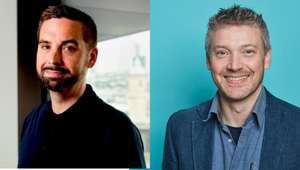
Pharma Faces 'Brand Paradox' as Trust and Innovation Collide, VML Analysis Reveals

As the world prepares to observe World Health Day on April 7th, a new trends analysis from VML Health highlights a critical challenge for the pharmaceutical industry: the 'Brand Paradox.'
'Health Futures' draws data from key trends identified in VML's Future 100 report for 2025 and explores their potential impact on health and pharma. It recognises 2025 as a year of consumer contradictions: as we crave stability and human connection while embracing the blurring lines between humanity and technology. This tension, coupled with the fact that over half of today's ads fail to spark an emotional reaction, underscores the complex landscape for pharma companies seeking to communicate within, and contribute to a healthier society.
The Health Futures analysis also asks, if only 13% of consumers strongly believe brands provide accurate information, how do pharma companies connect with increasingly discerning patients and healthcare professionals?
"Health Futures reminds us that whilst access to reliable health information is considered a fundamental right, patients are also becoming more discerning in their healthcare choices," says Jason Gloye, chief client officer and NA lead at VML Health. "Our analysis highlights some of the challenges presented to the health sector from some of the world's wider trends. Trends such as the 'Brand Paradox' which asks brands to embrace bold storytelling ideas but at the same time focus on honesty and efficacy. With more than half of today’s ads failing to spark an emotional reaction, and 73% of consumers wanting brands to make more effort to entertain them, the risk of being forgettable could be just as dangerous as being untrustworthy.”
5 Trends and Their Impact on Health and Pharma:
- The Brand Paradox: Humility vs. Showmanship: Balancing authenticity and spectacle to build trust. Consumers crave realness and relatability, yet they also want to be wowed with bold, imaginative storytelling.
The Analog Movement: Consumers are seeking tactile, real-world experiences in response to online burnout, creating opportunities for in-person engagement and sensory-rich activities.
Selective Healthcare: Patients are becoming more selective in their treatment choices, demanding greater value and personalised approaches. Seeing health brands needing to demonstrate why their treatments are worth prioritising, moving beyond broad access conversations to align with real-world patient decision-making.
Superforecasters: The Need for Hybrid Expertise: Integrating AI-assisted forecasting with human expertise to navigate complex timelines involved drug development and the management of different regulatory landscapes.
Reality Shift: As virtual health and metaverse experiences grow, younger generations explore reality-shifting practices, immersing themselves in alternative virtual experiences. Calling for brands to proactively combat misinformation and establish trust.
The report looks at how the 'Brand Paradox' and the increasing prevalence of 'Selective Healthcare' necessitate a recalibration of many pharma engagement models. While patient-centricity remains paramount, it also shows a shift towards a desire to leverage immersive online experiences and AI-driven interactions to deliver truly personalised education and foster authentic community connections.
Given the inherent challenges of building trust in a landscape saturated with information, it also demonstrates how authentic strategic collaborations and partnerships with figures who genuinely embody healthy lifestyles offer a valuable avenue for enhancing credibility.
Moreover, as the integration of AI is no longer a question of 'if,' but 'how,' the report points out that investing in hybrid expertise that combines AI-driven insights will outperform AI when it’s coupled with human judgment, as we see the rise of ‘Superforecasters’.
Finally, the trends point to the enduring power of tangible experiences. Supporting the incorporation of tactile, real-world elements into medical education and patient engagement strategies to create stronger emotional connections and address the growing desire for a trend towards analogue engagement, whilst at the same time, proactively addressing misinformation within virtual health environments.
"In a landscape where healthcare decisions are increasingly discretionary, the industry must move away from a volume-driven mindset toward a more intentional, outcome-based narrative," adds Jason. "Positioning treatments not as more healthcare, but as the right healthcare, at the right moment, for the right reasons, is essential for building trust, empowering patients, and contributing to a healthier world. All aligning perfectly with the goals of World Health Day."
For the Health Futures report, download here.















